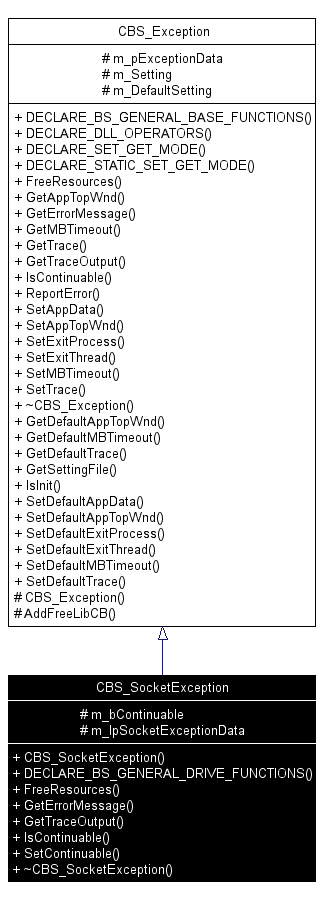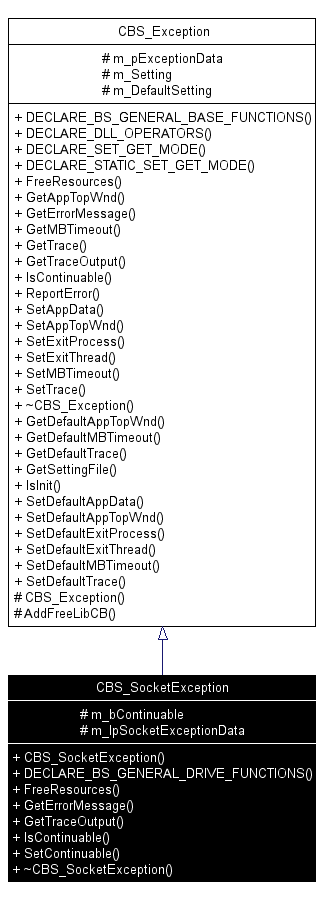
Inheritance diagram for CBS_SocketException:


Public Member Functions | |
| CBS_SocketException (LPCSTR lpReason, LPCSTR lpFileName, UINT nLine) | |
| virtual void | FreeResources (BOOL bFromDestructor=FALSE) |
| virtual DWORD | GetErrorMessage (LPTSTR lpMessage, DWORD dwBufLen) |
| virtual CBS_Trace::BS_TRACE_MODE | GetTraceOutput () |
| virtual BOOL | IsContinuable () |
| void | SetContinuable (BOOL bContinuable) |
| virtual | ~CBS_SocketException () |
Protected Attributes | |
| BOOL | m_bContinuable |
| A member indicating if the exception is continuable or not. | |
| LPVOID | m_lpSocketExceptionData |
| Private member for internal use. | |
|
||||||||||||||||
|
Constructor. The application should use the macro THROW_ExSocket( reason ) when it throws a socket exception.
|
|
|
Destructor. |
|
|
Frees the resources allocated by the current object.
Reimplemented from CBS_Exception.
|
|
||||||||||||
|
Formats a string that describes the exception associated with the current object. The formatted string is built from the reason (passed to the constructor) and the system socket error string. For example throwing the macro THROW_ExSocket( "Could not send the data" ) from C:\MyTestFile.cpp at line 455 will format the following string:
Reimplemented from CBS_Exception.
|
|
|
See return.
Reimplemented from CBS_Exception.
|
|
|
See return.
Reimplemented from CBS_Exception.
|
|
|
Sets the continuable flag to the exception object.
|
|
Bitspot AG |
||
|
Phone: |
+41 41 755 11 22 |
|
|
Fax: |
+41 41 755 11 31 |
|
|
e-mail: |
||
|
Web: |
||